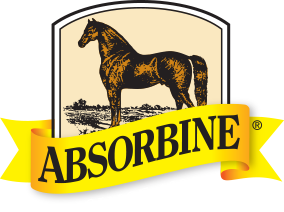 Hoof Nutrition Intelligence is a twice-a-month web segment that is designed to add to the education of footcare professionals when it comes to effectively feeding the hoof. The goal of this web-exclusive feature is to zero in on specific areas of hoof nutrition and avoid broad-based articles that simply look at the overall equine feeding situation.
Hoof Nutrition Intelligence is a twice-a-month web segment that is designed to add to the education of footcare professionals when it comes to effectively feeding the hoof. The goal of this web-exclusive feature is to zero in on specific areas of hoof nutrition and avoid broad-based articles that simply look at the overall equine feeding situation.
Below you will find Part 1 of the latest question and answer installment that you can share with your footcare clients.
Q: What is recommended in terms of nutrition with a foundered horse?
By Stephen G. Jackson
A: During the time immediately after a horse has foundered, limit the amount of soluble carbohydrates in the diet. This limitation is necessary in a foundered horse because the gut is compromised, fermentation in the cecum is disrupted, the rate of passage is not normal and the cercal epithelium is damaged.
All of these factors point to feeding a diet high in soluble fiber and low in starch. When it comes to selecting dietary needs for a foundered horse, it should be stressed that the very things that make high starch diets a bad idea are also going to limit the effectiveness of fiber digestion. Therefore, fiber sources that are readily fermentable should be used.
Foundered horses should not be fed very mature timothy hay. Hays for these horses should be cut at early stages of maturity, have low lignin content and a high leaf-to-stem ratio.
Fat supplementation has many benefits for the foundered horse. It is much more digestible than an equivalent amount of carbohydrate, is digested primarily in the small intestine and offers 90% digestibility. By adding fat, you can increase the energy density of the diet while avoiding questionable intakes of soluble carbohydrates.
It’s also wise to supplement the diet of a foundered horse with a good hoof supplement. My daily recommendations are to get 50 to 100 milligrams of biotin, 9 mm of methionine and 400 to 600 mm of chelated zinc into foundered horses. This represents as much as four times the normal dose for some recommended supplements.
Dr. Stephen Jackson is an equine nutritionist and the president of Bluegrass Equine Nutrition in Versailles, Ky.
Hoof Nutrition Intelligence is brought to you by W.F. Young Co. (Absorbine). 
Like many significant achievements, Absorbine® grew out of humble beginnings—and through the tenacity of someone willing to question the status quo. In this case, it was a young woman in late 19th-century Massachusetts: Mary Ida Young. Her husband, Wilbur Fenelon Young, was an enterprising piano deliveryman who relied on the couple’s team of horses to make deliveries throughout the Northeast. Inspired by Mary Ida and Wilbur’s vision, Absorbine® has continued to add innovative products throughout the years — products used every day by horse owners around the world. Which is why, since 1892, we’ve been The Horse World’s Most Trusted Name®.
Click here to read Part 2 of the July 15, 2015 installment: Since the drinking water for my horses is high in iron, is this a concern when it comes to hoof quality?
Click here to read more installments of Hoof Nutrition Intelligence.

Post a comment
Report Abusive Comment